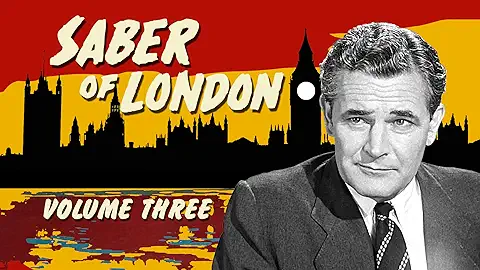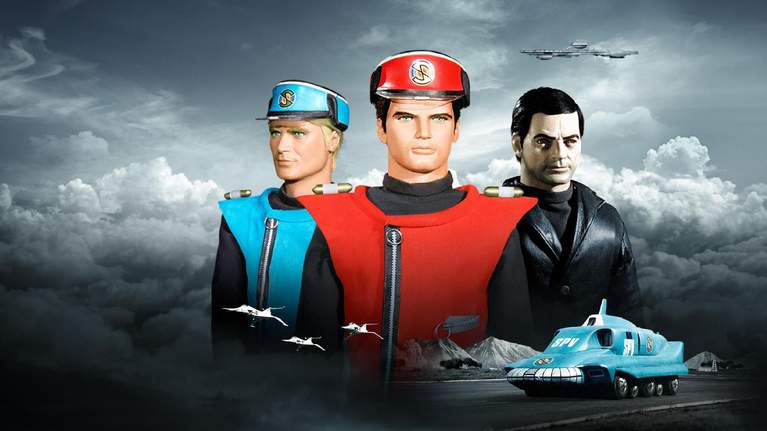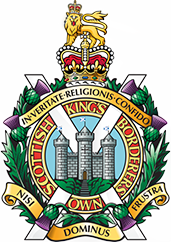Donald Gray
On screen he was the one-armed Private Investigator Mark Saber, delivering witty one-liners, solving misdeeds and being the scourge of bad eggs everywhere. Off screen he was South African Donald Gray, Intelligence Officer with the 1st Battalion King’s Own Scottish Borderers during World War II, and with the 3rd Division when they landed on the Normandy Beaches on D Day.
Born on an ostrich farm in South Africa in 1914, his birth name was actually Donald Elred Tidbury. During his school years he became known as a super sporting hero, with an excellent reputation as a rugby player. He went on to study law but soon gave that up to become a goldmine sampler. His life took a dramatic turn (literally) when he went to be screen tested in the ‘Search for Beauty’ competition, sponsored by Paramount Film Studios. Paramount wanted to inject some new talent into its current collection of stars and the prize would be passage to Hollywood. With his deep voice, sharp delivery and strikingly handsome features, Tidbury won, sparking off a promising career. His first big break was alongside Ralph Richardson in The Four Feathers (1939). After another reasonably big part in Sword of Honour (1939), The Evening Standard described him as being “a rising actor of 26 and one of the handful of British actors who are without much doubt bound for stardom.” High praise indeed, but his trajectory would soon change its course.
With the outbreak of World War II, Gray used his Scottish ancestry to find himself a place in the Gordon Highlanders and became one of the few South Africans to serve in a Scottish regiment during this period. He was then commissioned in the King’s Own Scottish Borderers with the service number 217390 and became education officer Lieutenant Donald Gray. After a brief stint of leave from the army, he even managed to star alongside Vera Lynn in the film We’ll Meet Again (1943), the film from which the eponymous song originates. Gray eventually became an Intelligence Officer with the 1st Battalion KOSB, returning to the army just in time for the action he had been so eager to be a part of. He was with the 1st Battalion when they were first to land on the Normandy Beaches on D Day and first to enter Caen. Gray was with the Commanding Officer on the first morning of the attack on Troarn. On the 19th July 1944, British troops tried to go forward with the support of tanks, Gray turned to check the firing of one of the tanks when a German anti-tank shell almost obliterated his upper left arm, leaving it barely hanging on. It would be amputated within days.
After the war and several attempts to reignite his career, he landed the role of Mark Saber in Saber of London in 1955 and, with his cool delivery and dapper charm, he managed to singlehandedly rescue some weak story lines and questionable dialogue. With an arching eyebrow almost able to rival that of Roger Moore, he introduced himself thus: Reporting crime is a reporter’s business, covering up crime is bad business, uncovering crime… well that’s my business. I’m Mark Saber. Stick around.

Many people will unknowingly remember Gray as the booming alien voice of the Mysterons in Captain Scarlet and the Mysterons, the sci-fi puppet series of the late 1970s. He apparently recorded a separate warning to children that they should never try to copy Captain Scarlet’s antics, as he was indestructible and they were not. Gray’s career may not have become the Hollywood celebrity he might have become, had it not been for the outbreak of World War II, but his career spanned four decades and, despite almost being blown up at one point, and after several career comebacks, he certainly proved himself to be almost as indestructible as Captain Scarlet.

